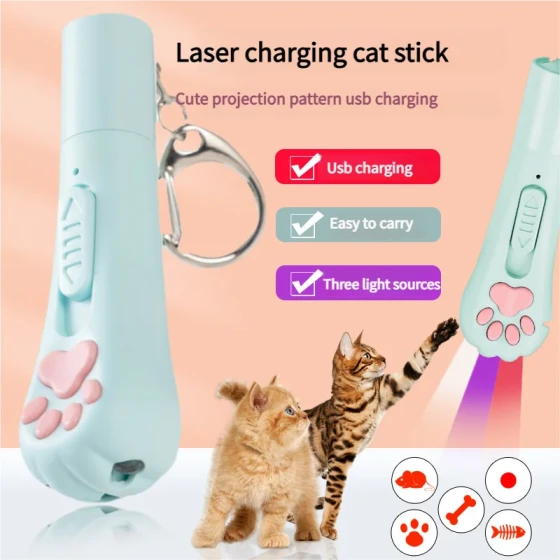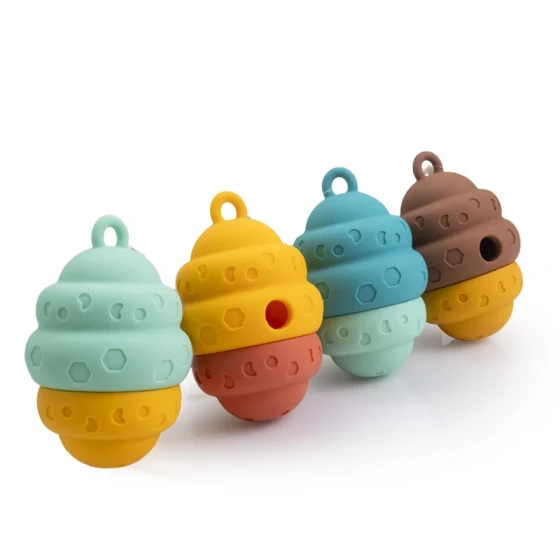Consequences of Hitting Cats_The Truth about Cats’ Stress Response and Excretion Abnormalities
Raising cats is a joy for many families; these independent and adorable “masters” bring endless happiness to our lives. However, during interactions with cats, we inevitably encounter moments when they “misbehave,” such as scratching the sofa or urinating inappropriately. Facing these situations, some owners might feel compelled to “discipline” their cats, even resorting to hitting them. But did you know? The consequences of hitting cats can be far more severe than you imagine, especially potentially triggering cats’ stress responses and a series of health problems, including troublesome excretion abnormalities.

Simply put, hitting cats not only risks physical harm but also causes psychological trauma, inducing stress responses that lead to various abnormal behaviors, including inappropriate urination and defecation. Understanding cats’ behavioral logic and mastering scientific and effective communication methods can help build a closer and more harmonious relationship with cats, allowing both to enjoy the pleasure of pet ownership.
What Is a Cat’s Stress Response?
A cat’s stress response is a state of physical and mental abnormality triggered when they face sudden changes or stimuli; their body enters a state of high alert, causing a series of physiological and psychological changes. This reaction stems from cats’ nature as both predators and prey, making them very sensitive to environmental changes—any sudden disturbance can cause their vigilance.
Stressors vary widely and may include sudden environmental changes (such as moving house, visitors or new pets at home), loud noises, physical discomfort, or even sudden scolding or corporal punishment from the owner. These unpredictable and uncontrollable factors easily make cats feel tense, scared, fearful, and uneasy, triggering a stress response.
Stress responses can be acute or chronic. Acute stress may manifest as airplane ears, dilated pupils, rapid breathing, hissing, hiding, piloerection, whole body stiffness, and trembling. Chronic stress can lead to loss of appetite, excessive licking (even causing hair loss or skin inflammation), inappropriate urination and defecation, lethargy, being easily startled, and avoiding closeness. Long-term stress severely harms a cat's health, weakening the immune system and increasing the risk of respiratory and gastrointestinal diseases, and may even induce lower urinary tract diseases like cystitis.
Why Does Hitting Cats Lead to Stress and Excretion Abnormalities?
Hitting cats is a very direct and negative stimulus. Cats cannot understand “punishment” as humans do; they only associate the pain and fear with the situation at that moment and the perpetrator (which is you). When you hit a cat, the cat feels scared, triggering its stress response.
Frequent corporal punishment places cats in a prolonged state of fear and anxiety, leading to chronic stress. Under stress, cats may exhibit various abnormal behaviors, among which inappropriate urination and defecation are common. This could be due to:
- Fear of the litter box: If cats are hit near the litter box or are afraid of their owner and avoid using areas where the owner may appear (including near the litter box), they may choose other places they consider safe to relieve themselves.
- Physiological reactions: Stress and anxiety affect a cat’s gastrointestinal function, causing diarrhea or constipation. Simultaneously, stress may trigger lower urinary tract diseases like cystitis, causing frequent urination, urgency, and painful urination, leading cats to urinate outside the litter box. Sometimes, stress-induced urinary problems can even lead to urinary blockage, a life-threatening emergency requiring urgent care.
- Marking behavior: When feeling stressed or unsafe, cats mark their territory by leaving their scent to comfort themselves. Inappropriate urination (especially spraying) is a common marking behavior. If a cat feels insecure because of being hit, it may alleviate its emotions through this behavior.
- Is it revenge? Actually, no: Many believe cats urinate inappropriately to “revenge” the owner, but in reality, cats’ thinking and memory patterns are not that complex. They do not intentionally urinate on your bed out of spite. Inappropriate urination is more a physiological and psychological reaction caused by stress, insecurity, or health problems. They may choose your bed or sofa because these places are soft, comfortable, and carry your scent, making them feel relatively safe.
Corporal punishment not only fails to correct a cat’s “wrong” behaviors but worsens their fear and stress, aggravating problems like inappropriate urination. Over time, cats may become timid, irritable, aggressive, and possibly completely lose trust in their owners, damaging your relationship.
How to Properly Handle Cats’ “Wrong” Behaviors?
Since hitting cats is unacceptable, what should we do when cats display behaviors like inappropriate urination or scratching? The key lies in understanding cats’ behavioral motivations and using scientific and effective guidance methods.
- Exclude health problems: Behavioral abnormalities, especially excretion problems, are often caused by health issues. Before any behavioral correction, take your cat to a vet to rule out urinary tract diseases, gastrointestinal issues, or other underlying health risks.
- Identify stressors: Try to analyze if there have been recent changes in your cat’s living environment or new stimuli causing stress. Finding and minimizing or eliminating stressors is key to relieving your cat’s stress.
- Provide security: Offer your cat a quiet, secluded, and comfortable “safe haven,” such as a high perch or a cardboard box, where it can hide when scared. Maintain environmental stability and reduce sudden changes as much as possible.
- Positive reinforcement: Reward your cat immediately when it performs desired behaviors (e.g., using the litter box or scratching post) with treats, petting, or verbal praise. Positive reinforcement is far more effective than punishment and helps cats build positive behavior associations.
- Improve litter box environment: Cats have high litter box standards. Ensure there are enough litter boxes (suggested number is number of cats + 1), placed in quiet, concealed locations away from food and water bowls. Choose cat-preferred litter types and box styles, keep litter boxes clean by scooping daily and thoroughly washing regularly.
- Redirect attention: If your cat likes scratching the sofa, provide a scratching post nearby and sprinkle catnip on it to attract them. If the cat likes chewing on things, offer appropriate teeth-grinding toys.
- Use auxiliary products: Under veterinary advice, consider using cat pheromone products that simulate the calming scents cats emit to help relieve anxiety.
- Patience and companionship: Recovering from stress takes time; maintain patience and understanding. Spend more time playing and interacting with your cat to enhance its sense of security and trust in you.
Remember, cats do not display bad behavior intentionally to anger you; they usually express their needs, discomfort, or emotions through behavior. As responsible owners, our duty is to understand them and guide them with scientific and loving methods, instead of using corporal punishment that creates more fear and problems.
Frequently Asked Questions
Q: Does inappropriate urination always mean the cat is sick?
A: Not necessarily. There are many reasons for inappropriate urination. Health problems (like urinary tract or gastrointestinal diseases) are common causes, but stress, litter box issues, and marking behaviors can also cause it. If your cat urinates inappropriately, it’s recommended to visit a vet to rule out health issues first.
Q: Is spraying water on cats effective?
A: While a water spray might temporarily stop a certain behavior, it is a negative punishment method that makes cats feel scared and stressed. Long-term use can backfire, increasing cats’ stress and anxiety and damaging the trust between you and your cat. Positive and proactive guidance methods are recommended.
Q: Do cats bear grudges?
A: Scientific studies show cats’ memory works differently from humans; they do not hold long-term grudges or plan “revenge.” If cats avoid you or show abnormal behavior, it is usually due to fear, insecurity, or stress response.
Q: How to tell if a cat is stressed?
A: Cat stress manifests in various ways, commonly hiding, loss of appetite, excessive licking, inappropriate urination/defecation, airplane ears, dilated pupils, rapid breathing, hissing, piloerection, being easily startled, and avoiding closeness. If you notice abnormal behavior lasting several days without improvement, your cat is likely stressed.
Summary
The “consequences of hitting cats” go far beyond physical pain, potentially triggering severe psychological and physiological problems. Stress responses can cause common and troublesome excretion abnormalities. Cat stress is a complex phenomenon caused by multiple factors, and corporal punishment only worsens their fear and insecurity, compounding the issues.
As cat lovers, we should discard the misconception that “spare the rod, spoil the child,” learn to understand cats’ behavioral language, and use patience, love, and scientific methods to guide them. When cats show abnormal behavior, first exclude health problems, then identify stressors, provide safe and stable environments, and apply positive reinforcement and other proactive training methods. Only in this way can we build deep trust and emotional bonds with our cats and share a harmonious and happy life. Remember, cats are not deliberately troublesome; they just need more of our understanding and help.



